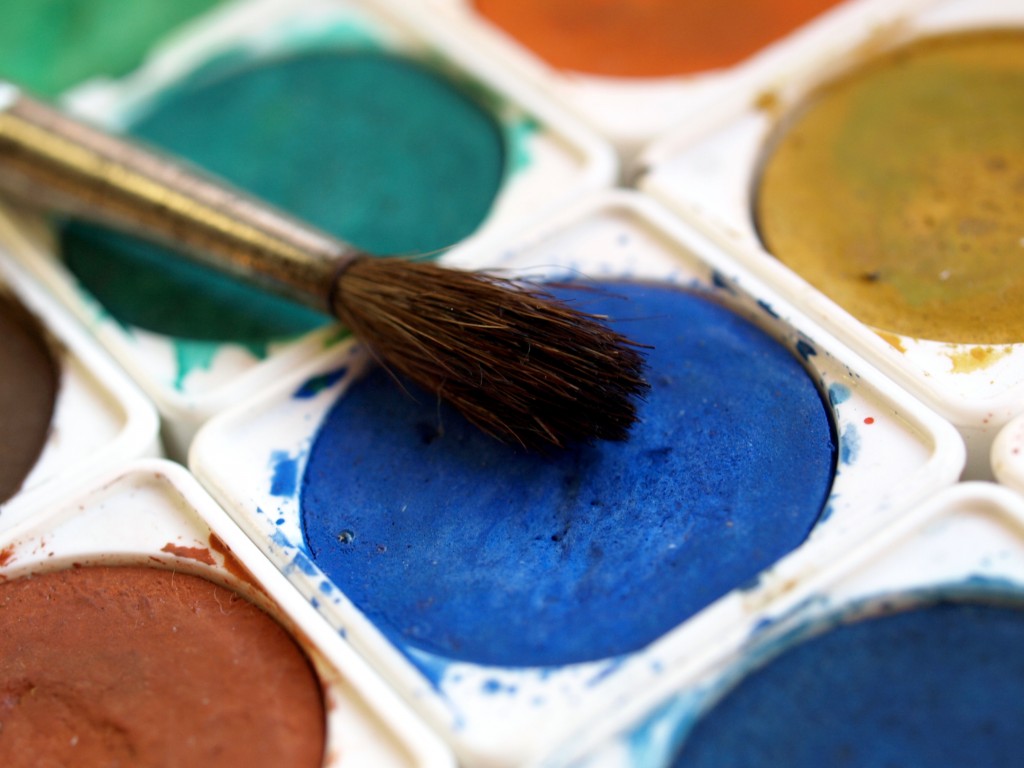 Art therapy is a specialized area of mental health that uses art materials and the creative process to explore emotions, reduce anxiety, increase self-esteem, and resolve other psychological conflicts. The American Art Therapy Association states that art therapy can be an effective mental health treatment for individuals who have experienced depression, trauma, medical illness, and social difficulties. Making art in therapy can be a way to achieve personal insight as well as healing.
Art therapy is a specialized area of mental health that uses art materials and the creative process to explore emotions, reduce anxiety, increase self-esteem, and resolve other psychological conflicts. The American Art Therapy Association states that art therapy can be an effective mental health treatment for individuals who have experienced depression, trauma, medical illness, and social difficulties. Making art in therapy can be a way to achieve personal insight as well as healing.
There’s more to art therapy than simply “drawing your feelings.” Art therapists are trained to lead people through the creative process in a therapeutic way. Just as your doctor may prescribe a medication or behavioral change to aid your physical healing, your art therapist offers art-based therapy interventions that are tailored to your needs. As with every aspect of therapy, the choice to engage with specific types of materials will ultimately be up to you.
“Art washes from the soul the dust of everyday life.” —Pablo Picasso
In this article, we’ll take a look at some of the top questions people have about art therapy.
Q: Do I need art training or experience to participate in art therapy?
A: No art experience is necessary for you. Your art therapist is highly trained in visual art as well as psychology, and he or she will guide you in the process of creating art using specific types of materials. All you need is a willingness to experiment and explore.
Q: What kind of training should my art therapist have?
A: Art therapy is a profession that requires at least a master’s degree in a program with specific art therapy components.
While expressive arts therapists are trained in art therapy, there is also the designation of art therapist whereby the therapist studies only art therapy. There are also associations that offer certification as a supplement to your education, rather than a degree. Many art therapists have an art therapy credential called an ATR that indicates they are registered with the national art therapy credentials board.Q: What kind of art will I make in art therapy?
A: It depends on your interests as well as the therapeutic benefits of certain types of art for your situation. Art therapy can include a wide range of art materials and processes. Your sessions could potentially include activities such as working with clay, painting, making a mask, creating a visual journal, and assembling a collage. Most often, the focus will be on the process rather than creating a finished art product.
Q: Do I get to keep the artwork that I make in art therapy? Will the art therapist show it to anyone else?
A: Your artwork is your creation and always belongs to you. Some people choose to keep the finished artwork, while others may decide to leave it in the care of the art therapist. Your art therapist will not show your artwork to anyone without your permission. The code of ethics followed by art therapists specifies that an art therapist must safeguard a client’s art creations the same way he/she would protect any other privileged information.
Q: Why are some art materials more appropriate for my situation than others? What does it mean to have an art therapist prescribe an art process for me?
A: Art materials have inherent healing qualities, but some are more appropriate for certain types of situations. For example, there is a therapeutic difference between using colored pencils, which are very dry and controlled, as opposed to watercolor paint, which is extremely wet and difficult to control. Your art therapist has specialized training in assessing which materials to suggest based on the issues you are facing, your frame of mind during the session, and other factors. Art therapists also have an extensive personal background in studio art, making them personally familiar with the use of specific types of art materials so that they can guide you through any difficulties that may arise in the creative process.
Q: Will the art therapist “interpret” my artwork?
A: Art therapists can use a variety of approaches, just as counselors or psychotherapists may utilize different approaches. It is not customary for a therapist to interpret your art. In a humanistic or transpersonal approach to art therapy, the focus will be on the personal meaning that you find within your own creative work, rather than an arbitrary meaning imposed by the therapist. You are the expert on your own artwork and creative process, and the art therapist’s role is to facilitate explorations of your work rather than to analyze or interpret it.
Reference:
Pablo Picasso Quotes—Art as Therapy. (2010, October 10). Retrieved May 6, 2013, from quotes: http://www.arttherapyblog.com/c/art-quotes/#ixzz2SYtZgGua

The preceding article was solely written by the author named above. Any views and opinions expressed are not necessarily shared by GoodTherapy.org. Questions or concerns about the preceding article can be directed to the author or posted as a comment below.


 How Art Therapy Supports Trauma Recovery
How Art Therapy Supports Trauma Recovery Confined or Not? Reflections on Disability, Language, and Microaggression
Confined or Not? Reflections on Disability, Language, and Microaggression Making Art Is Not Enough
Making Art Is Not Enough

Please fill out all required fields to submit your message.
Invalid Email Address.
Please confirm that you are human.
Leave a Comment
By commenting you acknowledge acceptance of GoodTherapy.org's Terms and Conditions of Use.